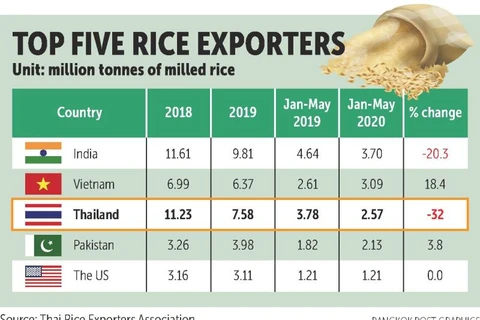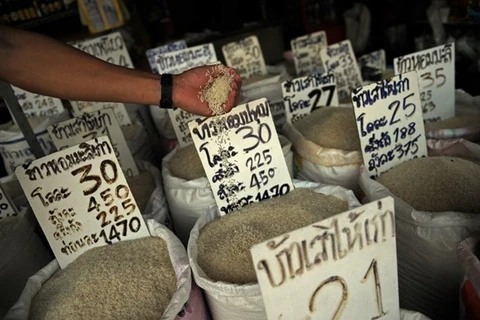 Shipping containers are loaded onto an international freighter at the Bangkok Port.(Photo: https://www.bangkokpost.com/)
Shipping containers are loaded onto an international freighter at the Bangkok Port.(Photo: https://www.bangkokpost.com/) Bangkok (VNA) - The weaker baht is expected to boost the Thai economy and increase real GDP of the country by 0.4 percent, but not all manufacturers will reap the benefits, according to the Industry Ministry of Thailand.
The ministry said that industries such as steel, medicine and oil, which depend greatly on the import of raw materials and have few exports, will bear the brunt of the baht depreciation.
Manufacturers will experience varying outcomes as the value of the baht decreases, but overall the Thai economy will benefit, said Industry Minister Suriya Jungrungreangkit.
The baht fell to 34.46 against the US dollar on June 7, down from 33.38 baht on December 30 last year.
Director-General of the Office of Industrial Economics (OIE) Thongchai Chawalitpichaet said if the value of the baht weakens by 5 percent, real GDP will grow by 0.4 percent. The real GDP is a measure of economic activities, with prices adjusted for inflation.
Manufacturers with high imports of raw materials and low exports of products need to adopt appropriate risk management to cope with currency fluctuations by making forward exchange contracts and foreign exchange options, Thongchai noted
The University of the Thai Chamber of Commerce (UTCC) on June 17 predicted that Thai exports this year will increase by 6.3 percent compared to the previous estimate of 5.4 percent./.
























